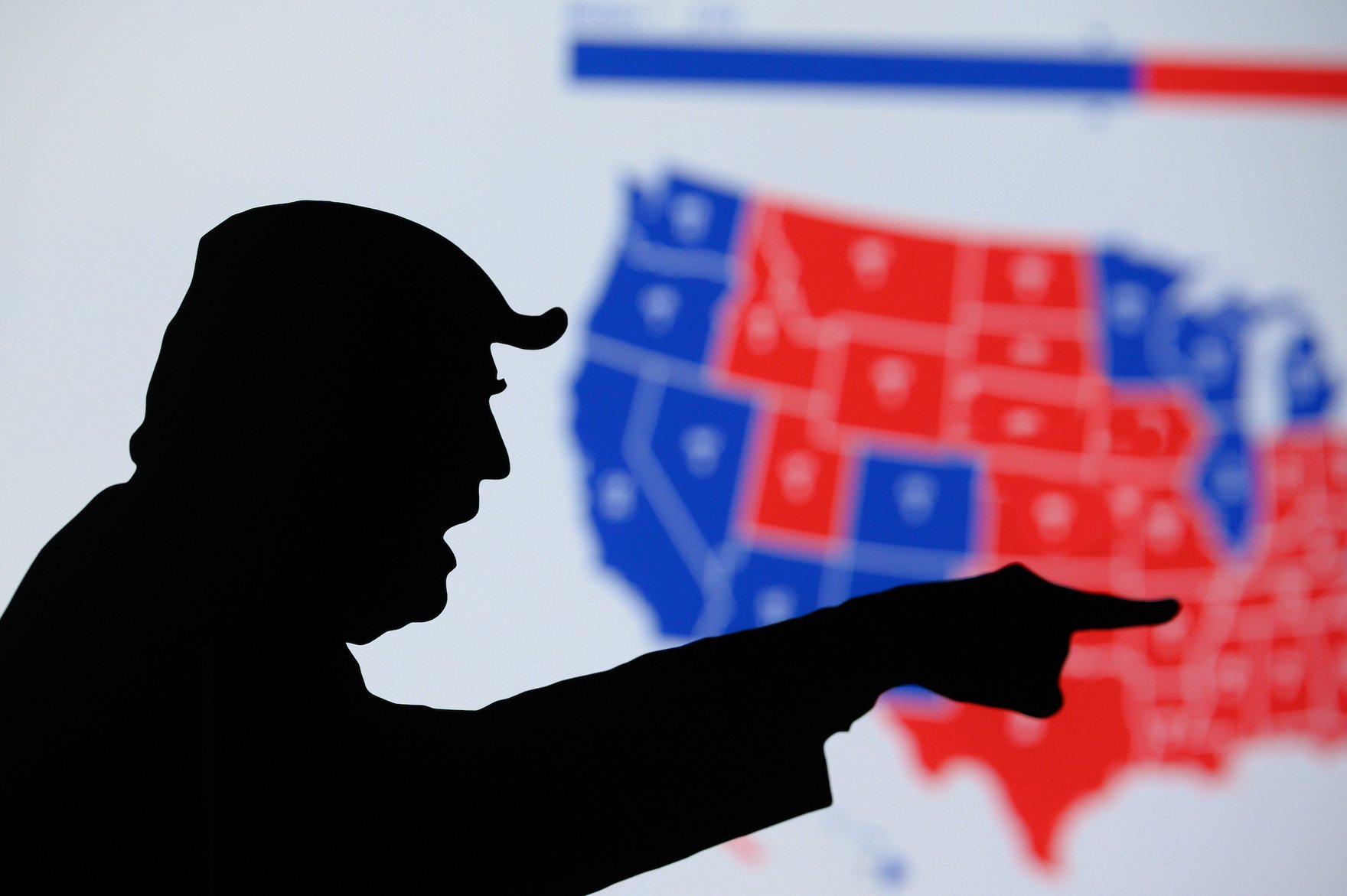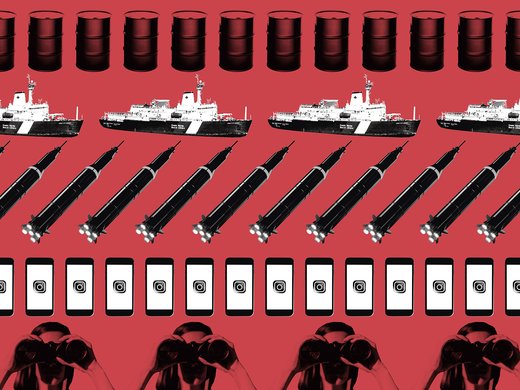We asked: “What do you think could be the greatest implications of another Trump presidency?”
Michael Den Tandt, Managing Editor, CIGIonline.org
It’s Groundhog Day in Ottawa. But that won’t last. Turmoil is on the horizon.
I am referring, of course, to the imminent return of former US president Donald Trump as the presumptive Republican nominee in the US presidential election, to be held in November 2024. Trump’s sole remaining opponent for the nomination, Nikki Haley, is not in a position to win. Polls consistently have shown that a rematch between Trump and Democratic President Joe Biden would be too close to call.
The implications are difficult to oversell. The North Atlantic Treaty Organization (NATO), which Trump destabilized from 2017 to 2021, is at risk; the World Trade Organization (WTO), similarly, is at risk; and US alliances worldwide, including with the European Union, Japan, Taiwan, Israel and Ukraine (the latter in particular), must be considered at risk. For Canada, each of these scenarios has potentially ground-shifting geopolitical implications. Trump with power is inherently unpredictable; he is a deeply idiosyncratic and mercurial person.
The two most immediate effects on Canadian politics and policy will be on defence and trade.
The two most immediate effects on Canadian politics and policy will be on defence and trade. The long-standing, valid American gripe that Canada spends too little on security and defence will move back to the foreground, amplified by the Israel-Gaza and Ukraine wars. A new Trump administration is unlikely to be mollified by incremental increases in planned military spending, as occurred in 2017 with the issuance of the Defence Policy Review.
And, get set for another trade war, or several, whether it’s over aluminum and steel, lumber, dairy, aerospace, or all of the above. Trump, unfettered by the semi-moderate voices who sought his ear in his first term, will be more hawkishly protectionist than ever. He has already floated the idea of a 10 percent blanket tariff on all imports to the United States.
That means the Government of Canada will once again be preoccupied with preserving our access to the US market, which accounts for 75 percent of Canadian exports. The wrinkle? Given the growing conflict around the world, a singular focus on trade is no longer possible. In short: buckle up.
Burcu Kilic, CIGI Senior Fellow
Past actions often serve as a precedent for future endeavours. Therefore, to understand the potential impact of another Trump presidency, examining his first term offers essential insights.
Traditionally, Republican presidents have favoured minimal regulations, reduced corporate taxes and antitrust policies that emphasize the consumer welfare principle. The Trump administration was no deviation from this tradition, championing a comprehensive deregulation agenda and reportedly eliminating or suspending 860 regulatory actions.
A second Trump term could likely see a resurgence of this deregulatory push, potentially reversing measures implemented by the Biden administration aimed at curbing the power of corporate tech giants, enhancing consumer rights and protecting digital privacy.
To understand the potential impact of another Trump presidency, examining his first term offers essential insights.
We’re likely to also see Trump revisiting his efforts to revise Section 230 — the legal provision that shields social media platforms from being held liable for user-generated content. Trump has consistently criticized social media platforms for allegedly silencing conservative perspectives, although some believe he actually benefits from Section 230 as platforms aren’t as strict as they could be on his questionable content under its protection. His 2024 campaign has vowed to prevent federal funds from being used to tag domestic speech as “misinformation” or “disinformation.”
Revising Section 230 is a complex issue, met with widespread political criticism, yet there’s little consensus on how to proceed. Big tech’s extensive influence, marked by significant political donations to nearly all key Congress members across the spectrum, presents a major hurdle to any substantial amendments to Section 230. Expect surveillance capitalism to remain the status quo as tech giants prefer endless discussions on Section 230 over any regulation curbing their power.
Arif Z. Lalani, CIGI Distinguished Fellow
If former president Trump were to again win the presidency, his track record in business and public office makes it clear — he will seek to obtain as much advantage as possible from the existing system with credit redounding to himself. Should there be another Trump presidency, do not expect preoccupation with the future of the global order, but instead prepare for a transactional, unpredictable presidency — chaotic in management. Governments and businesses will have to take more responsibility for system-wide policy, and burden sharing with US counterparts will be key. Some regions may see more stability.
Implications of another Trump presidency on security, commerce and US-Canada relations could include the following.
NATO countries will need to deliver on their pledges to invest two percent of their budgets on defence. The European Union will need to lead on assistance to Ukraine and be prepared for the United States to promote a negotiated resolution to a stalemated conflict. In the Middle East, a Trump presidency is likely to be welcomed by Gulf Cooperation Council states and Israel, though its impact on the current crises is uncertain. An unpredictable Trump presidency could keep China from taking bold actions against Taiwan. China could also be more willing to work with the United States on global stability as both powers address domestic challenges.
Governments and businesses will have to take more responsibility for system-wide policy, and burden sharing with US counterparts will be key.
Businesses will increasingly need to set out their own vision and policy direction for key sectors, particularly artificial intelligence governance, the broader technology sector, and maritime shipping security (facing threats such as regional conflicts, drought in the Panama Canal and insurance challenges).
As for Canada, every US administration asks what Canada brings to the table. Canada should move immediately to be more relevant globally, building more consequential relationships with India, key EU and Gulf countries, and Türkiye, and engage China as an adversary and global player. These countries will be key to Canada, to global issues and to any US administration.
Patrick Leblond, CIGI Senior Fellow
Under the first Trump presidency, the United States maintained its policy of unfettered cross-border data flows in trade agreements. In renegotiating the North American Free Trade Agreement, which became the Canada-United States-Mexico Agreement, the United States imported the digital trade provisions that are found in the Comprehensive and Progressive Agreement for Trans-Pacific Partnership and made them more liberal by removing some exceptions and ambiguous language.
This long-standing position on data flows was maintained by the Biden administration until October 25, 2023, when the Office of the United States Trade Representative announced that it was withdrawing its insistence on data-flow provisions in the negotiations of a plurilateral agreement on digital trade at the WTO. Ironically, this position reversal could pave the way to an e-commerce agreement being announced at the WTO’s upcoming thirteenth ministerial conference. It could also make it possible to create an international standards-setting and governance body dealing with cross-border data flows, led by the European Union and the United States.
We could expect a return to the data-flow policy stance that prevailed during his first term in office.
If Trump were to return to the White House in early 2025, then we could expect a return to the data-flow policy stance that prevailed during his first term in office. But this would not mean much in practice since digital trade is likely to be low on the list of priorities for a second Trump administration. Instead, the presidency would focus its attention on raising tariffs on the import of all physical goods, as well as on blocking the export of sensitive technologies.



